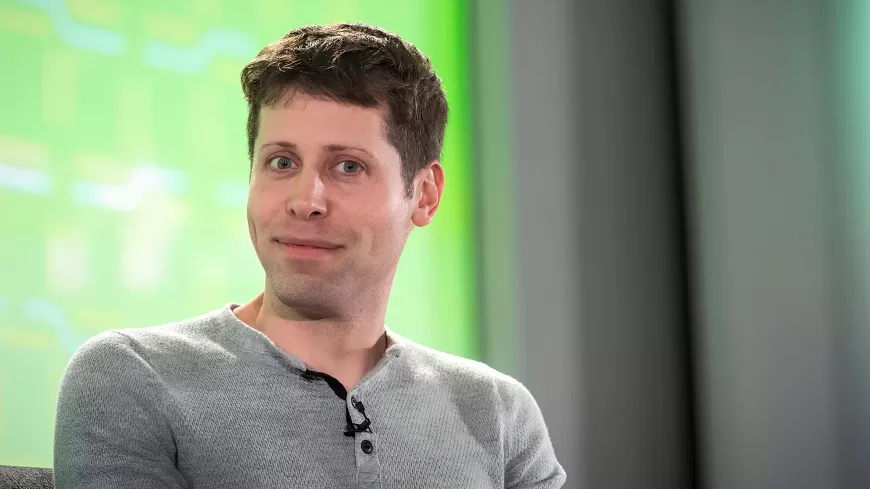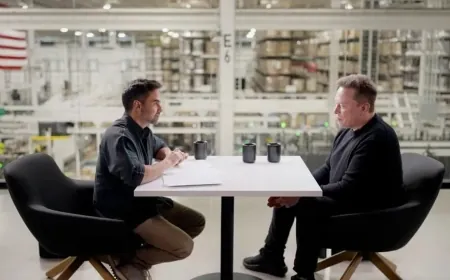OpenAI Plans Shift to For-Profit, Works Closely with Regulators on Next Steps
OpenAI is in talks with regulators to transition from nonprofit to for-profit, aiming to attract investors while preserving its mission to make AI safe and beneficial

OpenAI, originally a nonprofit organization with a mission to make AI safe and beneficial, is now taking steps to restructure as a for-profit company. The $157 billion company has begun early discussions with regulatory officials, including the attorney general’s office in California, to map out what this shift might look like. This change means OpenAI would operate more like a traditional business, but with a commitment to keep its nonprofit mission intact in some form.
The transition is expected to involve careful assessment of OpenAI’s valuable assets, like its ChatGPT technology, which could play a significant role in the company’s new structure.
Why the Change?
OpenAI started as a nonprofit in 2015, focused on developing artificial intelligence that could benefit everyone. However, the enormous costs of developing advanced AI models pushed the company to explore new funding models. In 2019, it created a capped for-profit subsidiary to bring in outside investment while still pursuing its public mission. This setup wasn’t without its challenges: in 2023, CEO Sam Altman faced temporary dismissal from OpenAI’s board due to tensions over balancing the company’s commitment to safe AI with the need to commercialize its technology.
The move to a for-profit structure would help OpenAI attract more investors, giving it the resources to fund costly AI research and development. Yet, OpenAI says it’s committed to keeping a nonprofit arm that would continue to uphold the company’s original mission.
What This Means for OpenAI’s Mission
The California attorney general’s office has been in preliminary talks with OpenAI to understand its plans. Rob Bonta, California's attorney general, has stressed that charitable assets—such as those held by OpenAI—must remain dedicated to their intended purpose. As OpenAI plans its transformation, it needs to show regulators how it will use its assets in line with its nonprofit mission.
OpenAI’s strategy includes transforming into a public benefit corporation (PBC), a type of for-profit that still prioritizes social good. This change would allow OpenAI to work as a business while keeping some protections around its original goals. Chief Strategy Officer Jason Kwon recently told employees that the new structure would keep a meaningful role for the nonprofit, which would hold a stake in the for-profit entity.
What’s Next in the Process?
Regulatory experts say this transition isn’t as simple as flipping a switch. Daren Shaver, a legal expert in nonprofit-to-for-profit transitions, explains that OpenAI will need to account for the value of its assets and ensure that charitable commitments are respected. California law requires that the value of any nonprofit’s assets aligns with its charitable purpose, which could make the review process more complicated.
The Delaware attorney general’s office is also involved in overseeing the process. State Attorney General Kathleen Jennings has requested OpenAI’s finalized plans for review by Delaware’s consumer protection division. OpenAI will also need to coordinate with tax authorities and meet requirements from both the Delaware and California secretaries of state.
Why This Matters for OpenAI’s Future
For OpenAI, this shift could be crucial to its financial stability. According to the New York Times, recent funding deals could convert to debt if OpenAI doesn’t finalize its new structure within two years. The transition, if successful, will allow OpenAI to continue developing cutting-edge AI technology while attracting the funding it needs to thrive.
In short, OpenAI’s move to a for-profit structure could bring new opportunities, but it’s a complex shift requiring careful planning and close collaboration with regulators to ensure its mission—and its value—are protected along the way.
Also Read: OpenAI Launches ChatGPT Search: A Game-Changer Challenging Google in Online Search
































































